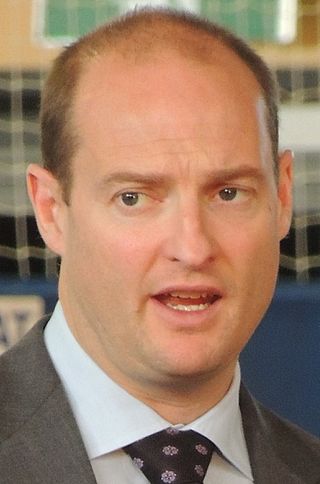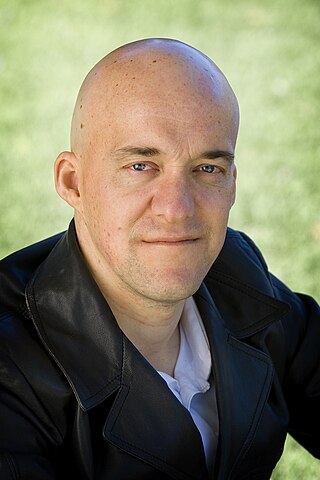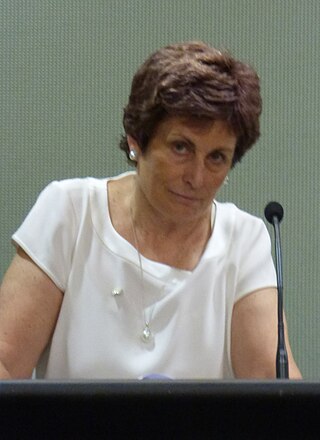Haydon Manning is an Australian political scientist and Adjunct Professor with the College of Business, Government and Law at The Flinders University of South Australia.
Robert Geoffrey Gerard AO is a businessman, was Chairman of the Gerard Family's company Gerard Industries Pty Ltd, a former member of the Reserve Bank of Australia, and ran for the leadership of the Liberal party in 1987. He was born and grew up in Adelaide, and attended Prince Alfred College.

Jay Wilson Weatherill is a former Australian politician who was the 45th premier of South Australia, serving from 21 October 2011 until 19 March 2018. Weatherill represented the House of Assembly seat of Cheltenham as a member of the South Australian Labor Party from the 2002 election to 17 December 2018, when he retired.

Thomas Richard Kenyon is a former Australian politician who represented the South Australian House of Assembly seat of Newland for the Labor Party from the 2006 election until his defeat in 2018. Kenyon left the Labor Party in 2021 to found the Family First Party.

Rear Admiral Kevin John Scarce, is a retired Royal Australian Navy officer who was the 34th Governor of South Australia, serving from August 2007 to August 2014. He was succeeded by Hieu Van Le, who had previously been his lieutenant governor. He was Chancellor of the University of Adelaide from 2014 to 2020.

The prospect of nuclear power in Australia has been a topic of public debate since the 1950s. Australia has one nuclear plant in Lucas Heights, Sydney, but it is not used to produce nuclear power. It is used to produce medical radioisotopes.It also produces material or carries out analyses for the mining industry, for forensic purposes and for research. Australia hosts 33% of the world's uranium deposits and is the world's third largest producer of uranium after Kazakhstan and Canada.

Barry William Brook is an Australian scientist. He is an ARC Australian Laureate Professor and Chair of Environmental Sustainability at the University of Tasmania in the Faculty of Science, Engineering & Technology. He was formerly an ARC Future Fellow in the School of Earth and Environmental Sciences at the University of Adelaide, Australia, where he held the Sir Hubert Wilkins Chair of Climate Change from 2007 to 2014. He was also Director of Climate Science at the Environment Institute.
UCL Australia was an international campus of the University College London, located on Victoria Square in Adelaide, South Australia. It had three parts: the School of Energy and Resources (SERAus), the International Energy Policy Institute (IEPI) and a branch of UCL's Mullard Space Science Laboratory. UCL Australia described its university community as "welcoming, dynamic and influential." The campus closed in December 2017.
Thomas Quirk is a corporate director of biotech companies and former board member of the Institute of Public Affairs, an Australian conservative think-tank for which he has written numerous articles and papers and provided comments to the media. Quirk joined the board of therapeutics company Sementis in 2011 as a non-executive director. Quirk is an occasional speaker on the topic of innovation in Australia, and has written extensively on subjects of energy policy and climate change. He is a former member of the Australian Climate Science Coalition's Scientific Advisory Panel. Quirk is a critic of Tim Flannery, the Climate Commission and environmentalists generally.
Benjamin "Ben" Heard is a South Australian environmental consultant and an advocate for nuclear power in Australia, through his directorship of environmental NGO, Bright New World.

The Nuclear Fuel Cycle Royal Commission is a Royal Commission into South Australia's future role in the nuclear fuel cycle. It commenced on 19 March 2015 and delivered its final report to the Government of South Australia on 6 May 2016. The Commissioner was former Governor of South Australia, Kevin Scarce, a retired Royal Australian Navy Rear-Admiral and chancellor of the University of Adelaide. The Commission concluded that nuclear power was unlikely to be economically feasible in Australia for the foreseeable future. However, it identified an economic opportunity in the establishment of a deep geological storage facility and the receipt of spent nuclear fuel from prospective international clients.

Leanna Read is an Australian biotechnology expert and businessperson. She was the fourth Chief Scientist of South Australia from 2014 to 2018. She was appointed in August 2014 as successor to Don Bursill and is the first woman to hold the position.
Timothy John Stone, CBE is a British businessman and senior expert adviser with interests in infrastructure, finance, nuclear power and water supply. He is a non-executive director of the Arup Group, chairman of Nuclear Risk Insurers and former non-executive director of Horizon Nuclear Power and a former senior expert non-executive director on the board of the European Investment Bank. He was also a non-executive director of Anglian Water from 2011 to 2015. He was appointed Chair of the UK's Nuclear Industry Association in October 2018.
James 'Jim' Wilson Voss is an American senior nuclear engineer who has managed nuclear materials and radioactive waste since graduating from Arizona University in the 1970s. Voss became known to Australians through his managing directorship of Pangea Resources, a consortium which planned to establish a nuclear waste repository in Australia in the late 1990s. Pangea's proposal was ultimately rejected following the efforts of the anti-nuclear movement in Australia. Voss is currently working at UCL Australia as an Honorary Reader. As of 2015 Voss is a partner at Predicus Consulting and a director of companies in the USA and the United Kingdom.
Nils Göran Arne Roos FTSE is a Swedish academic, technologist, author and businessman. He is a specialist in the field of intellectual capital and an expert in innovation management and strategy. He was appointed Thinker in Residence on industry development by the Government of South Australia in 2011, and subsequently moved to the state's Economic Development Board, where he serves as a member. Amongst a number of other positions, he is also a member of the Flinders University Council. Roos was named one of the 13 most influential thinkers for the 21st century by the Spanish business journal Direccion y Progreso.
The Committee for Adelaide is a non-partisan membership-based organisation providing an independent voice for the state of South Australia. It is committed to its namesake, Adelaide, the capital city of South Australia.
The nuclear industry in South Australia is focused on uranium mining, milling and the export of uranium oxide concentrate for use in the production of nuclear fuel for nuclear power plants. The state is home to the world's largest known single deposit of uranium, which is worked by BHP at the Olympic Dam mine.
Colin Wayne Dunsford is a retired Australian accountant and company director. He was a partner at Ernst & Young until 2010 and continues there as a member of the firm's advisory board. He is a Fellow of the Institute of Chartered Accountants in Australia and holds a Bachelor of Economics. In 2013, he became a Member of the Order of Australia "for significant service to the community of South Australia, and to the accounting profession". In 2016, he was one of a group of prominent South Australians who signed an open letter encouraging government to continue to explore opportunities in the importation and storage of spent nuclear fuel, following the findings of the 2015–16 Nuclear Fuel Cycle Royal Commission.
Dr Ian Duncan is a businessman active in the Australian resources sector. He is a past president of operations at the Olympic Dam mine in South Australia under Western Mining Corporation. He was Chairman of the London-based Uranium Institute in 1995-1996. From the 1990s to the present, Duncan has advocated for nuclear industrial development in Australia, specifically the development of facilities to store and dispose of nuclear waste and the legalization and development of nuclear power plants for the generation of electricity. He is a Fellow of the Australian Academy of Technology, Science and Engineering (ATSE), the Australasian Institute of Mining and Metallurgy (AusIMM), and Engineers Australia.
Michael "Mike" K. Heard is a prominent South Australian businessperson, best known for his directorship of electronics company, Codan Ltd. In September 2016, he was appointed Chair of the Future Industries Institute at the University of South Australia.







